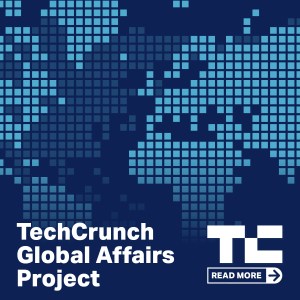Matt Rogers
The best way to drive lasting change is to create opportunities where the right thing to do is also the easy thing to do. The upcoming COP26 climate conference has the unique opportunity to incentivize new talent to innovate and deploy the widest variety of solutions possible to make this happen.
When it comes down to a split-second decision or a force of habit, the average consumer will always choose the more convenient path, even if that path is the “wrong thing to do.” Technology, coupled with deep empathy for the user experience, has the opportunity to meet consumers where they are — to offer solutions that not only meet the bare minimum of conveniently solving a problem, but also do so in a way that is better for more people.
All too often, I see companies — tech and otherwise — lose sight of this principle.
Let’s take a long-institutionalized example: recycling. Everyone knows that recycling is key to reducing waste and, in turn, mitigating climate change. We simply cannot keep making waste at the same rate that we are currently. Recycling is an attempt to alleviate the waste burden on the planet. The concept of recycling is simple: reuse old things in new ways. However, when the average consumer is faced with a split-second decision between the blue bin or black bin, it’s much easier to toss an item into the black bin rather than take the necessary step(s) to investigate the exact recyclability of that item.
On the other hand, at Nest, we knew that average households wasted a huge chunk of energy when the thermostats were left set at the same temperature all day. We also knew that the last thing busy people (and everyone is a busy person) needs is to remember to set or reset their thermostat based on weather patterns, time of day or energy-consumption spikes.
It’s one thing to tell someone to turn their thermostat off, because it’s good for the planet. It’s another thing to simply turn off their thermostat for them, automagically. When we added automation, energy-usage data, app controls and a design that makes temperature regulation feel cutting edge, we had a product that we knew would drive lasting change. On average, the Nest Learning Thermostat saved 10%-12% energy on heating and 15% energy on cooling per household (more stats here).
At Nest, we made energy saving in the home the cool thing to do, sure. But that’s not all. We educated our customers to see their personal cost benefit as well as the planet’s. Nest made it easier and more convenient for the average consumer to do the right thing.
But let’s zoom out from Nest.
This is a pivotal moment for technology to solve big problems. The biggest and most time-crucial of these problems being climate change. We have the opportunity to use the advancements we’ve achieved over the last few decades to make it easier for everyone — yes, everyone — to get involved with saving the planet. We need to create, fund and champion technology that actually does good in tandem with doing well.
As an investor, I see tech companies either embracing or ignoring this principle every day. A few years ago, I met Arch Rao, founder of Span, and was immediately struck with how his idea makes a cumbersome task easier and, in so doing, causes positive change. Today, it’s really hard to electrify your home. Sure, you could install a solar panel or a battery in your basement, but it’s challenging for home owners to know if these instruments are actually helping them to save energy. Span is an electric panel that lets the homeowner control every circuit in the home remotely through a phone app. Span introduced user-centered design to an unsexy category: home electricity.
This begs the question: If we can apply human-centered design, technology, great UX and end-to-end product thinking to more areas (no matter how “boring”), what kind of solutions can we build? What kind of big problems could we solve?
We’ve made great progress in moving toward solar and renewables, but it’s not enough. We must plan and dedicate resources toward solutions across all industries. This call to action may start at tech, but it needs support from investors, non-profit advocacy groups and policymakers. And we need the leaders gathered in Glasgow later this month to set out a roadmap of incentives. There are no silver bullets to climate change and there is no one person, idea or company that will solve it. It takes all of us; it takes all our ideas.
Simply put: People are motivated to do the right thing, but only so far as it is more convenient. As we build, let us embrace human nature as our challenge. Technology that stands the test of convenience will ultimately stand the test of time to drive lasting change. How can we make doing the right thing easier than doing the wrong thing? Figure that out, teach others how to do the same, and we will put ourselves in a position to save the world.
































Comment